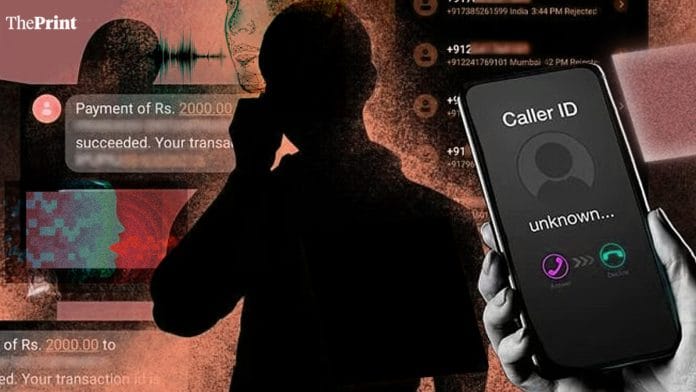Thank you dear subscribers, we are overwhelmed with your response.
Your Turn is a unique section from ThePrint featuring points of view from its subscribers. If you are a subscriber, have a point of view, please send it to us. If not, do subscribe here: https://theprint.in/subscribe/
It all started innocuously enough—a small short payment of ₹98.33 on my credit card. For some reason, this tiny sum triggered a statement with a jaw-dropping interest charge of ₹4600. Naturally, I protested and reached out to the bank. My initial attempts included going to X (formerly Twitter) to find the verified handle of the bank. I messaged them, and for good measure, also messaged another handle that seemed legitimate: “BanknameIndia Help.”
The Plot Thickens
Both handles asked me to share my contact details. Soon enough, I received a call around 5:30 PM. A lady’s voice greeted me, asking two questions to “validate” my identity. Then she said she needed another minute to ask one more question. Her tone suddenly softened: “Your payment record is good; you will soon hear from us.”
Moments later, I got a message on X (verified handle) stating that someone had spoken to me and included a reference number. Soon after, an email arrived, referencing the same number and including a link: “Click here to reversal charges on card.”
At this point, my guard was wavering. I even received three missed calls from someone named “Mayank” from the number 6351951133. When I returned the call, he referred to the email and asked me to click on the link.
The Suspicious Link
I asked him why the email had landed in my junk folder. I also pointed out that the sender’s email ID didn’t look like it belonged to the bank. Despite this, curiosity (or perhaps exhaustion) got the better of me, and I clicked the link. It redirected me to a Google Meet page, asking for permission to access all the contacts on my phone. Alarm bells rang loudly in my head.
“I’ll use my laptop to log in,” I told him. His response? “No, mobile only.” Suspicion turned to certainty. When he asked me to share my screen, I firmly refused and hung up.
Round Two: The Persistence of Scammers
Next day, I officially complained to the bank. They assured me that the amount was too small to fuss over and agreed to reverse the charges. End of story? Not quite.
I began receiving calls from exotic numbers: +226 601 44 44 (Burkina Faso) and a number from Mali. The person on the line spoke polished English, claiming the toll-free number was listed on the back of my card. He sent another email—again with a suspicious link. This time, it prompted me to download an app called “Zoho Assist,” allegedly a “customer app.”
When they asked for a selfie and the last four digits of my card, I became defensive. “Why do you need a selfie for reversing charges?” They insisted this was standard procedure.
A Close Call
I kept my cool until they tried another tactic—offering to upgrade my credit limit by 40%. They asked me to log in and take another selfie. I complied but refused to share the OTP I received. That’s when they attempted a transaction on Grofers.com. My card, thankfully blocked, saved the day.
The scam unraveled. Though my money was safe, my peace of mind wasn’t. The mental stress these crooks caused was immense.
Lessons Learned
1. Beware of Social Media Handles: Always double-check the authenticity of handles on platforms like X.
2. Be Careful with Contact Details: Sharing your number with unverified sources is a big no-no.
3. Stay Alert Always: Whether the caller speaks Hindi or flawless English, scams transcend language barriers.
4. Don’t Download Suspicious Apps: If you didn’t request it, you don’t need it.
5. Know Your Tools: Learn to verify email domains to spot fakes easily.
6. Be Skeptical of “Too Good to Be True” Offers: A massive credit limit increase out of the blue? Think twice.
Closing Thoughts
This experience taught me that scammers are high-tech, but their tactics often aren’t. They rely on fear, confusion, and trust to exploit victims. The mental toll of such incidents is no joke—it’s exhausting to stay vigilant, but vigilance is your best defense.
Remember, no legitimate organization will ask you to share sensitive information over a random link or call. And if you ever feel pressured, don’t hesitate to tell them to FO.
Stay safe, stay sharp—and don’t let the scammers win!
These pieces are being published as they have been received – they have not been edited/fact-checked by ThePrint


